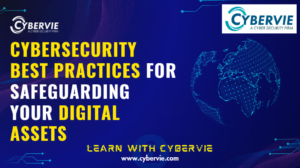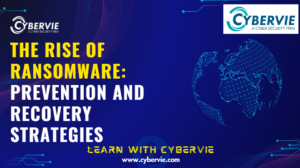Top SOC Challenges Faced in SOC Operation
Overview
The purpose of this document is to list the SOC challenges faced by the security team to run SOC operation smoothly” is indicating that the document’s main goal is to enumerate the difficulties that the SOC team experiences while trying to ensure that the SOC operations are running smoothly.
Challenges
- Staffing and resource constraints: It is one of the major SOC challenges, SOC managers may struggle to find and retain qualified staff, especially those with the necessary skills and knowledge to effectively identify and respond to security incidents. This can lead to a shortage of personnel, which can make it difficult to effectively manage SOC operations. Additionally, SOC managers may not have enough resources to effectively manage SOC operations, such as people and technology. Listed few roles which is played in SOC.
- SOC Analyst: A SOC Analyst monitors and analyzes security alerts and events to identify potential threats to an organization’s systems and networks.
- Incident Responder: An Incident Responder investigates and responds to security incidents, working to contain the impact of the incident and mitigate any damage.
- Threat Hunter: A Threat Hunter proactively searches for signs of compromise in an organization’s systems and networks, using tools and techniques to identify potential threats that may have gone undetected by other security measures.
- SOC Manager: A SOC Manager is responsible for overseeing the SOC’s operations and ensuring that the team is following best practices and meeting performance metrics.
- Forensic Analyst: A Forensic Analyst uses advanced tools and techniques to investigate security incidents and identify the source of a breach or attack.
- Security Engineer: A Security Engineer designs and implements security solutions to protect an organization’s systems and networks.
- Threat Intelligence Analyst: A Threat Intelligence Analyst analyzes threat data from a variety of sources to identify emerging threats and trends that may impact the organization’s security posture.
- Managing alerts and Incidents: SOC team may have difficulty managing the large number of alerts and Incidents generated by SIEM, which can lead to missed or false alerts, and can make it difficult to effectively identify and respond to security incidents. Especially this could be a SOC analyst Challenges.
- Process standardization and automation: SOC managers may have difficulty standardizing and automating different security processes, which can lead to inefficiencies and a lack of visibility into the security posture of the organization. For example, if an organization does not have a standard escalation matrix, it can make it difficult for the SOC manager to effectively coordinate incident response efforts. Here are the few process listed below and this could be the common SOC Challenges to define the below listed process..
- Incident Management: : This process involves detecting, analyzing, and responding to security incidents in a timely and effective manner.
- Threat intelligence: This process involves gathering and analyzing information about potential security threats and vulnerabilities to identify emerging risks and improve incident response.
- Vulnerability management: This process involves identifying, tracking, and prioritizing vulnerabilities in the organization’s IT infrastructure and applications to reduce the risk of exploitation.
- Access management: This process involves managing user access to critical systems and data to prevent unauthorized access.
- Change management: This process involves managing changes to IT systems, applications, and configurations to prevent unauthorized changes that could introduce vulnerabilities or cause downtime.
- Security monitoring and analysis: This process involves continuous monitoring of network traffic, system logs, and other data sources to identify and respond to security events.
- Compliance management: This process involves ensuring that the organization complies with relevant laws, regulations, and industry standards related to security and privacy.
- Staffing and resource constraints: It is one of the major SOC challenges, SOC managers may struggle to find and retain qualified staff, especially those with the necessary skills and knowledge to effectively identify and respond to security incidents. This can lead to a shortage of personnel, which can make it difficult to effectively manage SOC operations. Additionally, SOC managers may not have enough resources to effectively manage SOC operations, such as people and technology. Listed few roles which is played in SOC.
- Disaster Recovery: This process involves developing and implementing a plan to recover critical systems and data in the event of a major disruption, such as a cyber attack, natural disaster, or other unforeseen event and this will be a high impacted SOC challenge.
- Continuous Improvement: The process involves reviewing the current security policies and procedures, identifying gaps, and implementing measures to improve security operations. It helps identify vulnerabilities and risks in the network and ensure that the team is equipped to handle the emerging threats.
- People skills development: SOC managers may have difficulty in providing training, mentoring and development programs to the SOC team members, which can lead to a lack of skills and knowledge to effectively identify and respond to security incidents. This can make huge SOC challenge especially for the SOC manager to ensure that the team is prepared to handle a variety of security incidents, and it is High valued SOC challenge as well and it can make it difficult for the team to keep pace with new threats and vulnerabilities.
- Integration and compatibility: SOC team may face challenges integrating and compatibility of different security tools and technologies, which can lead to inefficiencies and a lack of visibility into the security posture of the organization. For example, if the SOC is using multiple security tools such as SIEM,EDR,TIP etc that are not compatible with each other, it can make it difficult to effectively monitor and respond to security incidents and this SOC challenge comes with every security product vendor.
- Communication and coordination: SOC people may struggle to communicate effectively with other teams and stakeholders, which can lead to delays in incident response and a lack of coordination between teams. For example, if an organization does not have a proper communication channel then the SOC team is not able to effectively communicate with the respective team, it can make it difficult to quickly contain and resolve a security incident.
- Cyber Threats: SOC team may have difficulty keeping pace with the constantly evolving threats, and may struggle to adapt to new threats and vulnerabilities. For example, if the SOC team is not able to effectively identify and respond to new types of threats, such as ransomware, it can lead to a data breach and significant financial losses. Whereas they don’t have advance detection use-cases.
- Difficulty in measuring ROI: It is common SOC Challenge which is faced by service providers. SOC managers may have difficulty in measuring the return on investment of Customers SOC operations, which can limit their ability to effectively justify the need for SOC.
- Limited budget and resources: SOC managers may have limited budgets and resources to acquire and maintain the necessary security tools and technologies, which can limit their ability to effectively protect the organization. This can make it difficult for the SOC manager to implement the necessary security controls and to keep pace with new threats and vulnerabilities.
- Lack of incident response and remediation: Most of the SOC operation may have difficulty in implementing incident response and remediation processes, which can lead to delays in incident response and a lack of visibility into the security posture of the organization.
- Lack of metrics and reporting: SOC managers may have difficulty in measuring the performance of their SOC operations and may have difficulty obtaining the necessary metrics and reports to effectively evaluate the security posture of their organization.







